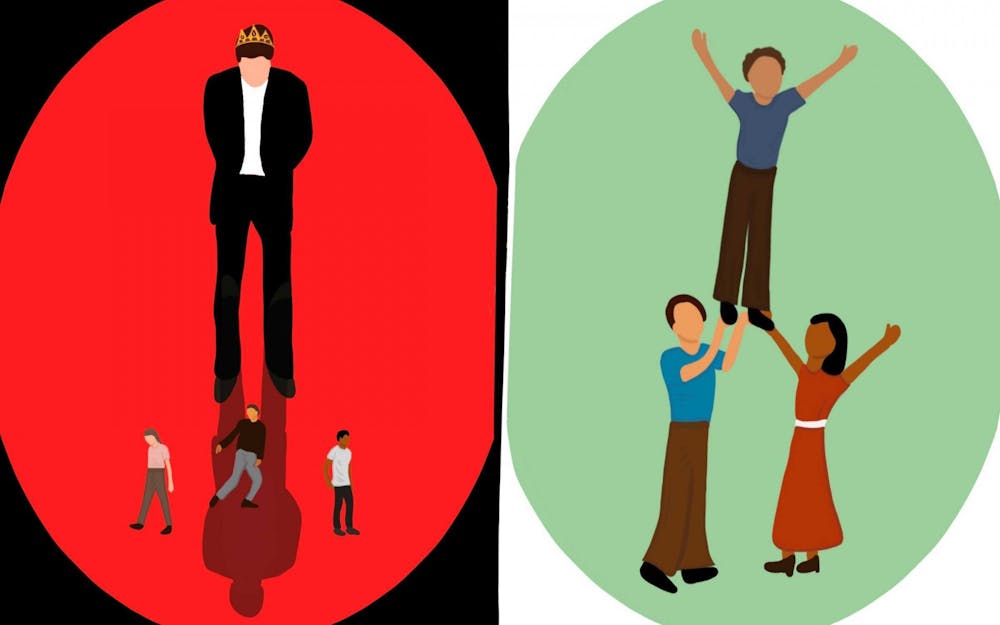“The call to serve” is a concept that can be found in the religious traditions of antiquity with kings and prophets being called by God to their great roles. This concept has a modern application in democratic societies where leaders are called on by the people to serve as opposed to rule.
There is a reason modern political and social leaders pale in comparison to the great leaders of history. The call to serve is an old tradition we desperately need to bring back.
The tradition can be traced back to early Roman Republic statesman Lucius Quinctius Cincinnatus, who was granted total power as a dictator by the people during a time of war and political upheaval, only to give up his power and retire to his farm shortly after.
Across the Atlantic centuries later, George Washington was called on by his peers to take on the powerful role of commander in chief rather than pursuing it for himself, only to relinquish the reins of government after serving eight short years.
More recently, the NAACP requested Dr. Martin Luther King Jr. to lead and organize the Montgomery Bus Boycott, which marked the beginning of his career in activism.
An Indiana politician by the name of Eugene V. Debs is another example of a great public servant who was placed into positions of power in politics and among labor unions by his peers rather than being someone who sought power for power’s sake.
These are public servants—called to serve and never power-hungry.
However, there is another kind of leader.
We could call them “princes” because they fit Niccolo Machiavelli’s idea of a ruler from his work The Prince. Machiavelli wrote the definitive amoral guide for rulers who wished to acquire and cling to power by any means necessary.
“Everyone sees what you seem to be, few know what you really are; and those few do not dare take a stand against the general opinion,” Machiavelli said.
The ideas of choosing “lesser evils” and the “ends justifying the means” can also be found in this work that remains one of the most influential writings in modern political history.
This “Machiavellian” philosophy of using deception, fear, cruelty and oppression as tools for governing used to be an amusing archetype in Shakespeare’s plays, but it has now become the norm among modern politicians.
Many on both the right and left have considered Indiana's own Mike Pence to be an example of a Machiavellian figure in his shifting loyalties, artificial public personas and at times ruthless governing style.
Pence is far from the only one. Politics in Washington, D.C. and most of modern global politics are run by Machiavellian principles. We may as well call the district a “City of Princes.” Public service is out of style, and instead, ruthlessness and cunning ambition are rewarded.
Fake public personas, conniving political tactics and ever-changing stances and convictions are all laughed off as part of politics as usual. We shouldn't tolerate this anymore. Our democratic republic was designed for public servants, not princely rulers.
All is not lost. We shouldn't become cynical about politics. The princes in power would want people to throw up their hands in hopeless passivity. That's why we need to elect leaders who will serve instead of rule again. Leaders who are granted power, rather than who seize it. Leaders who are willing to let go of it instead of cling to it.
Where do we find these people?
Servants are busy working in fire stations, hospitals, schools and soup kitchens. Servants are underpaid public defenders who fight unwinnable cases for people who can't afford a lawyer. Servants are military personnel who have risked their lives in combat. Servants are the religious leaders who bring out the best in their community.
These people can be found working the not-so-glamorous but essential jobs of public service. We just need to give them the call.
Eric Reingardt (he/him) is a freshman studying pre-law. He is a freelance writer with a profile on Substack.






